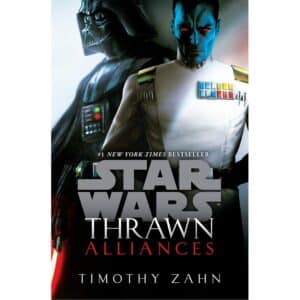Dune (Dune 1)
2.199 kr.
Bókin sem byrjar mest selda vísindasögubálk allra tíma.
Á lager
Lýsing
Set on the desert planet Arrakis, Dune is the story of the boy Paul Atreides, heir to a noble family tasked with ruling an inhospitable world where the only thing of value is the „spice“ melange, a drug capable of extending life and enhancing consciousness. Coveted across the known universe, melange is a prize worth killing for…. When House Atreides is betrayed, the destruction of Paul’s family will set the boy on a journey toward a destiny greater than he could ever have imagined. And as he evolves into the mysterious man known as Muad’Dib, he will bring to fruition humankind’s most ancient and unattainable dream. A stunning blend of adventure and mysticism, environmentalism and politics, Dune won the first Nebula Award, shared the Hugo Award, and formed the basis of what is undoubtedly the grandest epic in science fiction.
Frank Herbert is the bestselling author of the Dune saga. He was born in Tacoma, Washington, and educated at the University of Washington, Seattle. He worked a wide variety of jobs–including TV cameraman, radio commentator, oyster diver, jungle survival instructor, lay analyst, creative writing teacher, reporter and editor of several West Coast newspapers–before becoming a full-time writer.
In 1952, Herbert began publishing science fiction with „Looking for Something?“ in Startling Stories. But his emergence as a writer of major stature did not occur until 1965, with the publication of Dune. Dune Messiah, Children of Dune, God Emperor of Dune, Heretics of Dune, and Chapterhouse: Dune followed, completing the saga that the Chicago Tribune would call „one of the monuments of modern science fiction.“ Herbert is also the author of some twenty other books, including The White Plague, The Dosadi Experiment, and Destination: Void. He died in 1986.
Nánari upplýsingar
| Þyngd | 0,48 kg |
|---|---|
| Ummál | 19,05 × 10,67 × 4,32 cm |
| Höfundur | |
| Bókasería | |
| Tegund | Kilja |
| Bls. | 535 |
Aðrar spennandi vörur
Vísindaskáldsögur
Vísindaskáldsögur
Vísindaskáldsögur
Vísindaskáldsögur
Vísindaskáldsögur
Vísindaskáldsögur
Vísindaskáldsögur
Vísindaskáldsögur
Vísindaskáldsögur
Vísindaskáldsögur
Vísindaskáldsögur
Vísindaskáldsögur
Vísindaskáldsögur
Vísindaskáldsögur
Vísindaskáldsögur
Vísindaskáldsögur
Vísindaskáldsögur
Vísindaskáldsögur



















